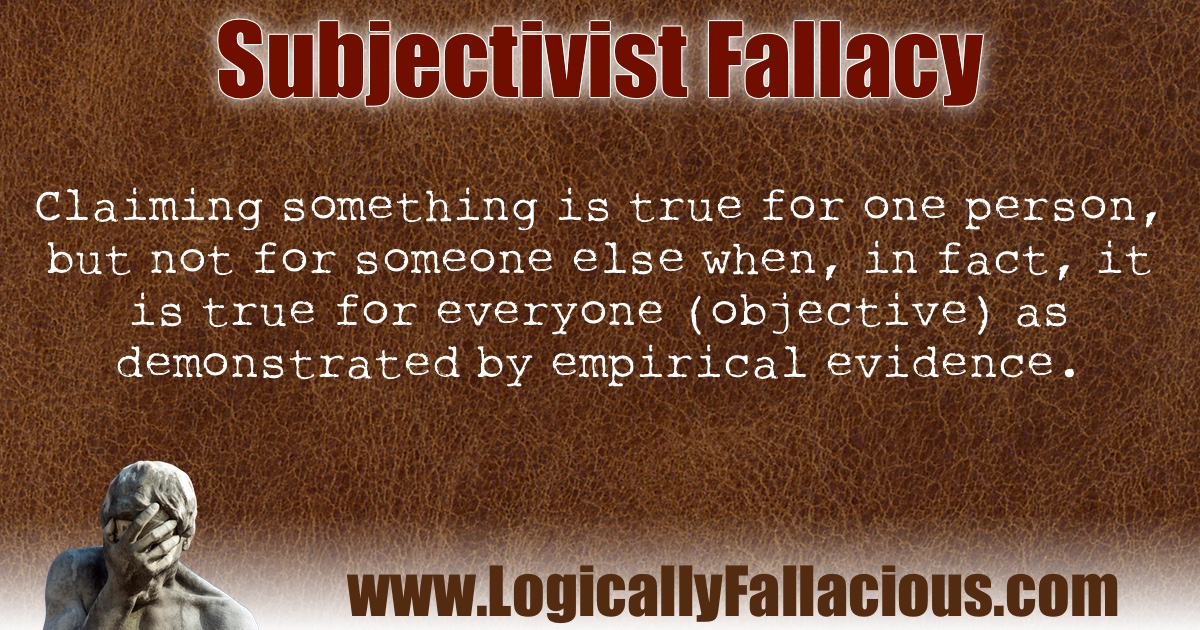(also known as: relativist fallacy)
Description: Claiming something is true for one person, but not for someone else when, in fact, it is true for everyone (objective) as demonstrated by empirical evidence.
Logical Form:
Person 1 claims that Y is true.
Person 2 claims that Y is true for some people, but not for everyone (even though empirical evidence demonstrates otherwise).
Example #1:
Jane: You know, smoking might not be the most healthy habit to start.
Terry: Smoking is unhealthy for most people, but not for me.
Explanation: Sorry Terry, smoking is unhealthy for everyone -- you are no different.
Example #2:
Jack: Sorry, your argument is full of contradictions.
Ted: Contradictions only apply to the carnal mind, not the spiritual one.
Explanation: Besides being a case of the subjectivist fallacy, Ted is also moving outside the realm of reason and logic.
Exception: Many things are actually true or false, depending on the person to which the rule may or may not apply.
While Twinkies may be horrible to you, I find them delicious—baked, spongy sunshine with a white, creamy, cloud-like center, with the power to make any problem go away—even if just for a brief, magical moment.
Tip: Stay away from Twinkies.
